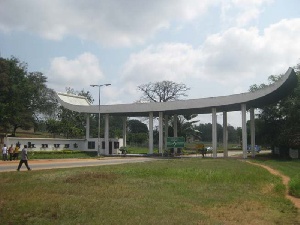The Department of Silviculture and Range Management of the Kwame Nkrumah University of Science and Technology (KNUST), has initiated moves to safeguard the environment and promote efficient management of the nation’s natural resources.
It has collaborated with the Wageningen University and Research Centre in the Netherlands, set up a Centre of Excellence in Satellite Remote Sensing and Geographic Information System (GIS) Technologies to train people in satellite imagery for environmental mapping, modelling and monitoring.
Professor Richard Akromah, Provost of the College of Agriculture and Natural Resources, announced this at the 51st congregation of the KNUST in Kumasi.
He indicated that they were currently developing the course modules.
The Forestry Commission (FC) estimates environmental degradation in the major natural resource sectors – water, forest and land at about 10 per cent of the country’s Gross Domestic Product (GDP).
The forest sector alone accounts for almost 60 per cent of this, equivalent of about US$500 million.
A total 606 students, made up of 402 males and 204 females, graduated and awarded Bachelor of Science degrees. Fifty-eight (58) of them had first class honors.
Prof Akromah also spoke of efforts towards developing cost effective feeds for tilapia culture, using locally available feed ingredients including copra, soya bean, cotton seed and groundnut
The University’s Department of Fisheries and Watershed Management had sought collaboration with the Danish Technical University on the project and the funding was coming from the Danish Agency International for Development (DANIDA).
He said two of the best performing diets were now being tried in cages, ponds and tanks.
Relatedly, the Department has forged partnership with the Ghana Irrigation Development Authority to assess the feasibility of utilizing three irrigation reservoirs at Bontanga, Golinga and Ligba, all in the Northern Region, for tilapia production.
Prof Akromah said the project had received funding from the Australian government and meant to improve food security and human nutrition in the region.
General News of Thursday, 6 July 2017
Source: GNA













